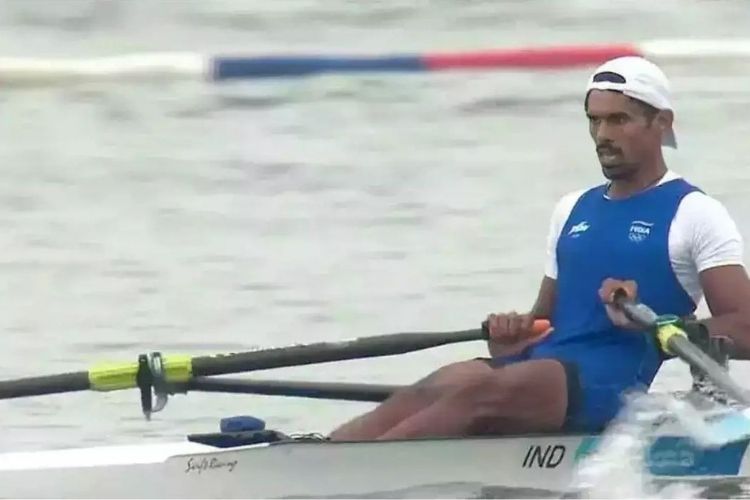
Panwar grew up a very quiet lad in Kaimla village of Gharaunda subdivision in Karnal, Haryana.
They call him the MS Dhoni of Indian rowing. There is reason. He also maintains the silence. Even after having earned qualification for the Paris Olympics he looked calm. He is Balraj Panwar.
His predecessor Dattu Bhokanal was a mercurial character. But Panwar has proved his mettle in a veni-vidi-vici style of progress. He took up rowing only four years ago at Roorkee and made the Olympics cut before turning 25.
At the Asian Games trials, an error pushed him 20 meters behind the fleet, but he would make up in the last 150 meters with sensible pacing.
At the Olympics qualification at Chungju, Korea this weekend, Panwar led the finals till the 1500 meters of the 2 km race and had the 5th slowest 1 min 48.6 seconds split over the last 500m, but he would declare of his 7:01.27 3rd finish timing, "I had done enough in the first 1600. I had no fear of being overtaken or missing the Olympic qualification, so I didn’t need to push,” explained Balraj while speaking to The Indian Express.
He sounded economical with his words and effort. No mad flapping at the start, only to fade away later.
The sport of rowing needs stoic perseverance and ceaseless repetitions of the same stroking action for years together, without searching for constant excitement and adrenaline.
Panwar says his modest army salary brought stability to his once-impoverished family of an early widowed mother and 4 siblings, now a young wife and child. "Now my mind is stable, I don't crave anything. I focus on rowing," he says.
Panwar grew up a very quiet lad in Kaimla village of Gharaunda subdivision in Karnal, Haryana. He has faint memories of losing his father Randhir at age 10, but his mother Kamala says her husband suddenly fell ill and the Karnal hospital couldn’t save him, and he was gone in 8 days. Balraj was told by his mother to study diligently as his father’s last wish, and he never missed a day of school.

Speaking to The Indian Express his mother revealed, "Times were hard with 5 children to take care of. I would do daily wage jobs, either in the factory or on construction sites. Some days, I'd sell milk, or pick vegetables, shred wheat.”
She recalled. “It was hard labour, but I told Balraj his father wanted him to never miss a day of school and that he would have to take up the responsibility of the family soon. Unlike other children, there was no khel-kood in his childhood. He was studious and always sincere. But now we are proud of him taking up the boat-sport, and representing India," she concluded.
Leave A Comment
Your email address will not be published. Required fields are marked.

